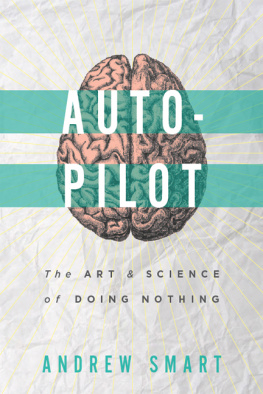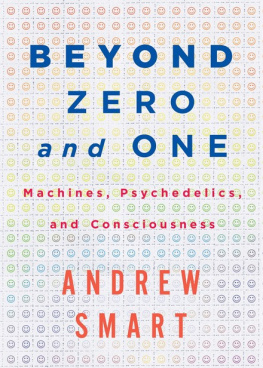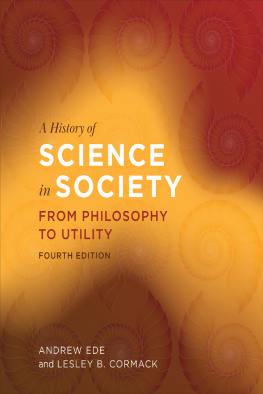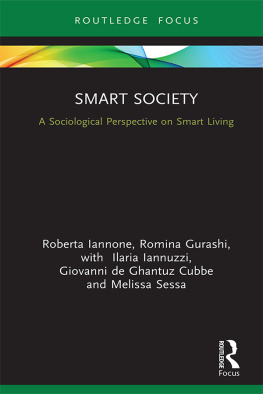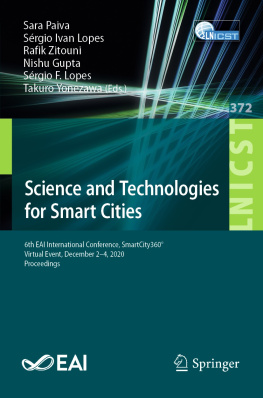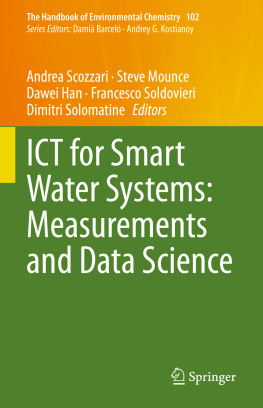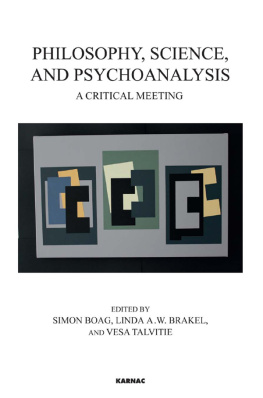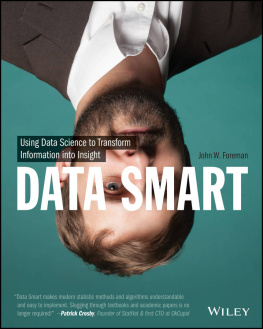
Andrew Smart wants you to sit and do nothing much more oftenand he has the science to explain why
A hugely entertaining read about what we do most of the time, i.e. nothing. If you are to read one pop science book this year, this should be it.
PROF. HAKWAN LAU, DEPARTMENT OF PSYCHOLOGY, COLUMBIA UNIVERSITY
At every turn, were pushed to do more faster, more efficiently: that drumbeat resounds throughout our wage-slave society. Multitasking is not only a virtue, its a necessity. But Autopilot argues that slackers may have the last laugh. It makes a compelling case backed by science that filling life with activity at work and at home actually hurts your brain.
Autopilot is a witty, informative and wide-ranging book that draws on the most recent research into brain power. Use it to explain to bosses, family, and friends why you need to relaxright now.
A human factors research scientist, ANDREW SMART received B.S. and M.S. degrees from Lund University in Sweden, where he worked on using noise to improve memory and attention in children with ADHD. While at New York University, he analyzed brain imaging data from experiments on the neural basis of language. Autopilot is his first book.
2013 Andrew Smart
Visit our website at www.orbooks.com
First printing 2013.
All rights reserved. No part of this book may be reproduced or transmitted in any form or by any means, electronic or mechanical, including photocopy, recording, or any information storage retrieval system, without permission in writing from the publisher, except brief passages for review purposes.
Library of Congress Cataloging in Publication Data: A catalog record for this book is available from the Library of Congress.
British Library Cataloging in Publication Data: A catalog record for this book is available from the British Library.
Typeset by Lapiz
Printed by BookMobile, USA, and CPI, UK.
The U.S. printed edition of this book comes on Forest Stewardship Council-certified, 30% recycled paper. The printer, BookMobile, is 100% wind-powered.
ISBN 978-1-939293-10-7 paperback
ISBN 978-1-939293-11-4 e-book
INTRODUCTION
I have often wondered whether especially those days when we are forced to remain idle are not precisely the days spent in the most profound activity. Whether our actions themselves, even if they do not take place until later, are nothing more than the last reverberations of a vast movement that occurs within us during idle days.
In any case, it is very important to be idle with confidence, with devotion, possibly even with joy. The days when even our hands do not stir are so exceptionally quiet that it is hardly possible to raise them without hearing a whole lot.
Rainer Maria Rilke
This book is about being idle. Being idle is one of the most important activities in life, and I have roused myself to share my thoughts on the subject, and hope to convince others as well. This, despite the fact that all over the world our working hours are increasing and every time management book on the market claims that you can and should get more done. The message of this book is the opposite. You should get less done; in fact you should be idle. Neuroscientific evidence argues that your brain needs to rest, right now. While our minds are exquisitely evolved for intense action, in order to function normally our brains also need to be idlea lot of the time, it turns out.
We are too purposeful, too directed; we should let ourselves go on autopilot more often. In aviation, an autopilot is a system for controlling airplanes without input from pilots, developed because flying an airplane manually requires absolute, constant attention from the pilot. As flying got higher, faster, and longer, manual flying caused serious (and dangerous) levels of pilot fatigue. The introduction of autopilots allowed pilots to take a break from physically controlling the airplane so they could save mental energy for higher risk phases of the flight, like takeoff and landing. Today, autopilots use software to fly the plane.
The downside of autopilots is that sometimes pilots become confused about whether the autopilot or they themselves are flying the plane. This is called mode confusion and has resulted in fatal accidents.
Interestingly, your brain has an autopilot. When you enter a resting state, relinquishing manual control over your life, your brains autopilot engages. The autopilot knows where you really want to go, and what you really want to do. But the only way to find out what your autopilot knows is to stop flying the plane, and let your autopilot guide you. Just as pilots become dangerously fatigued while flying airplanes manually, all of us need to take a break and let our autopilots fly our planes more of the time. The trick is to avoid mode confusion by taking it easy, putting away our schedule, and not getting things done.
Psychological research has shown that humans, especially American humans, tend to dread idleness. However, this research also shows that if people do not have a justification for being busy, on average they would rather be idle. Our contradictory fear of being idle, together with our preference for sloth, may be a vestige from our evolutionary history. For most of our evolution, conserving energy was our number one priority because simply getting enough to eat was a monumental physical challenge. Today, survival does not require much (if any) physical exertion, so we have invented all kinds of futile busyness. Given the slightest or even a specious reason to do something, people will become busy. People with too much time on their hands tend to become unhappy or bored. Yet as we will see in this book, being idle may be the only real path toward self-knowledge. What comes into your consciousness when you are idle can often be reports from the depths of your unconscious selfand this information may not always be pleasant. Nonetheless, your brain is likely bringing it to your attention for a good reason. Through idleness, great ideas buried in your unconsciousness have the chance to enter your awareness.
Our long-standing idlephobia has lead inexorably to our current near-obsession with busyness. In a prescient 2006 editorial in the journal Medical Hypotheses , Bruce Charlton argued that modern society is dominated by jobs characterized by busyness. Busyness refers to multitaskingperforming many sequential jobs, and switching frequently between them on an externally imposed schedule. In most careers, the only path to advancement is through the seeming mastery of busyness. Francis Crick, who co-discovered DNA and won a Nobel Prize, famously resisted rising through the administrative ranks of the academic world because he detested managerial busyness.
The definition of idleness I explore in this book is the antithesis of busyness: perhaps doing one or two things a day, crucially on an internally imposed schedule. Chronic busyness is bad for your brain, and over the long-term busyness can have serious health consequences. In the short term, busyness destroys creativity, self-knowledge, emotional well-being, your ability to be socialand it can damage your cardiovascular health.
From a neuroscientific perspective, studying idleness in the lab turns out to be easy. And in fact, the incredible brain activity that only happens when you are doing nothing was discovered by accident, when subjects in brain imaging experiments just lay in the brain machines daydreaming. I extend this laboratory definition to include any time during your day that you are not on an externally imposed schedule and have the chance to really do nothing , or when you have the freedom to let your mind wander toward whatever it is that comes into your awareness in the absence of busyness. True insight, whether artistic or scientific, emotional or social, can really only occur in these all-too-rare idle states.

